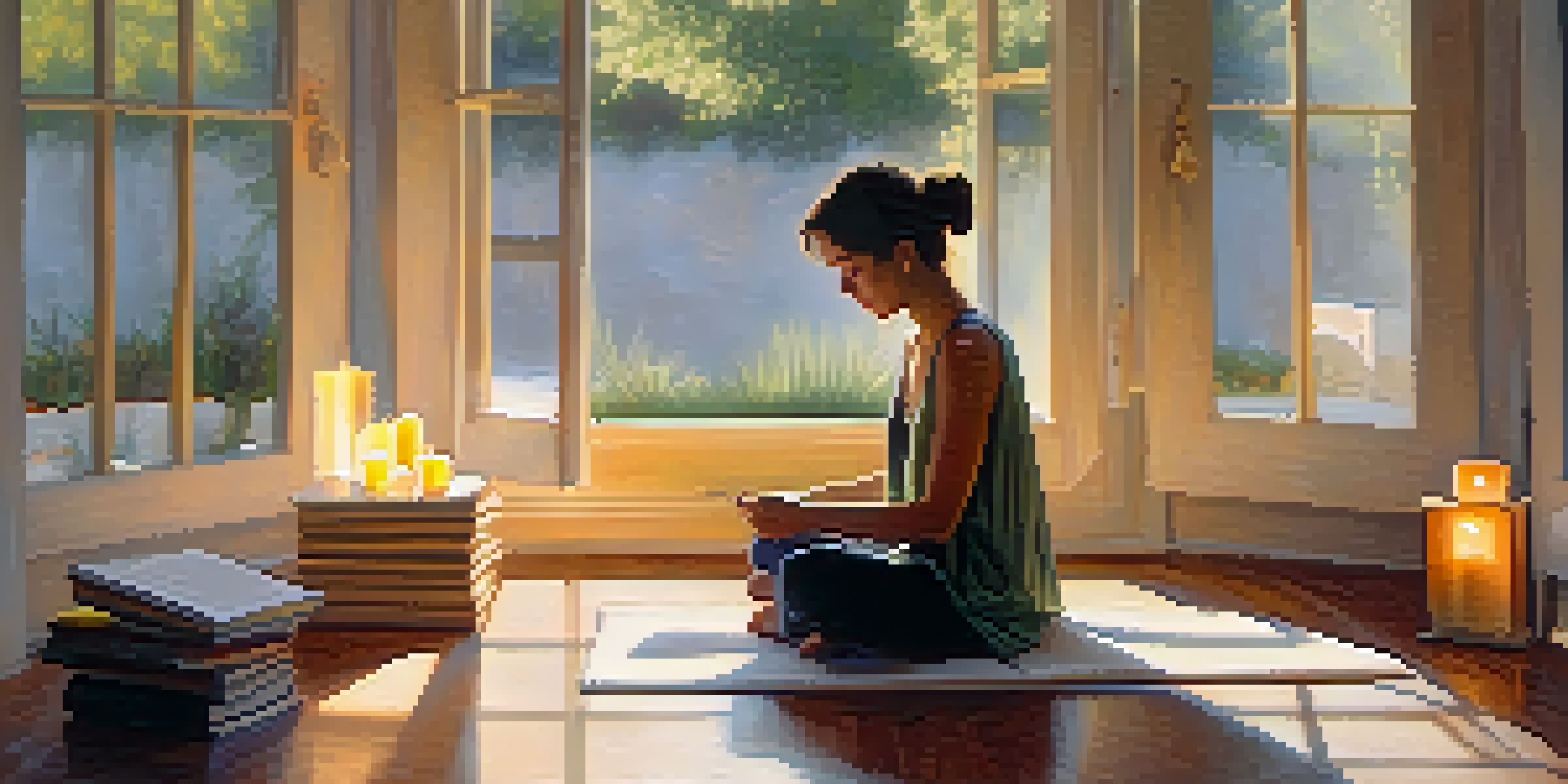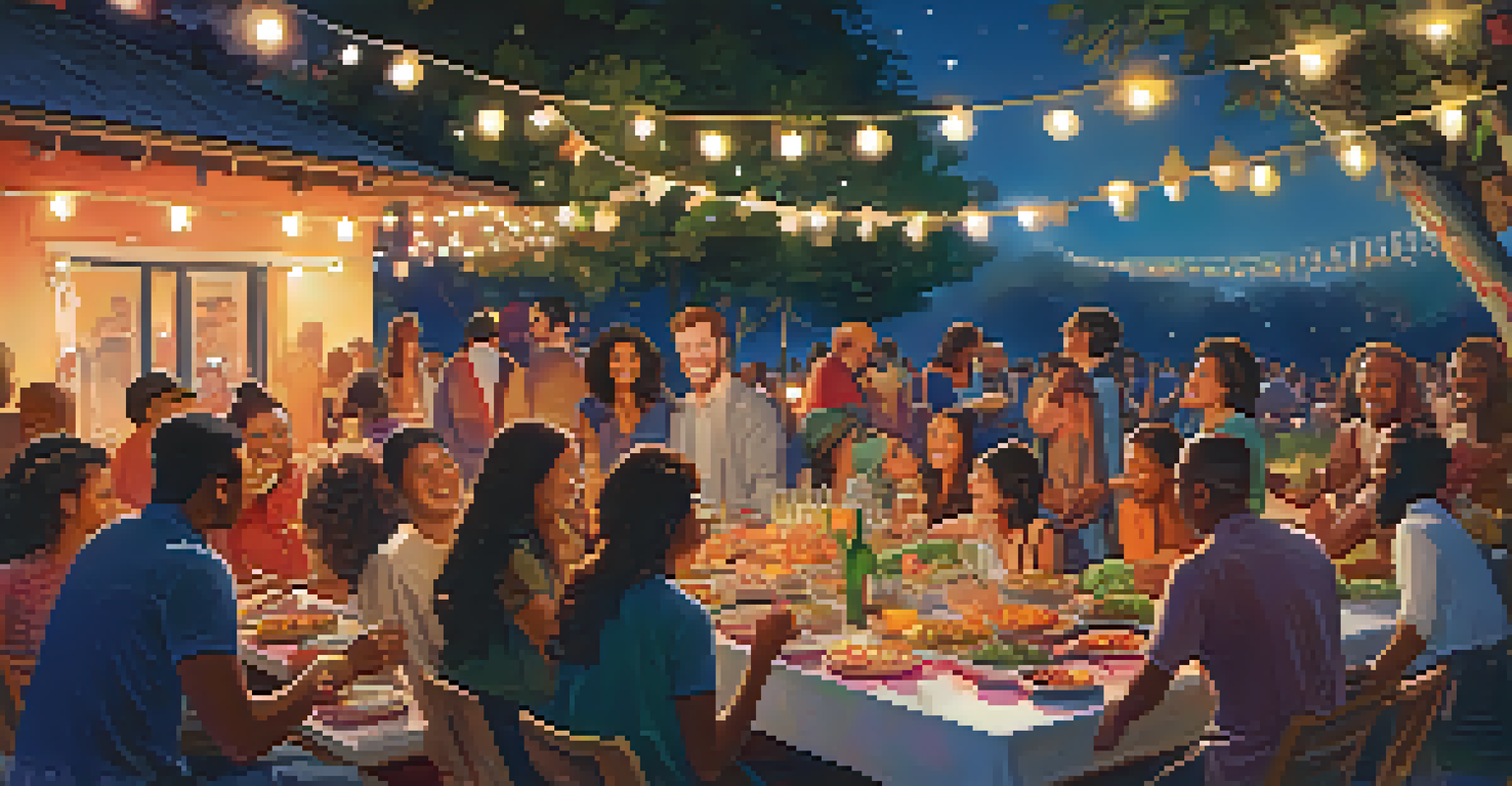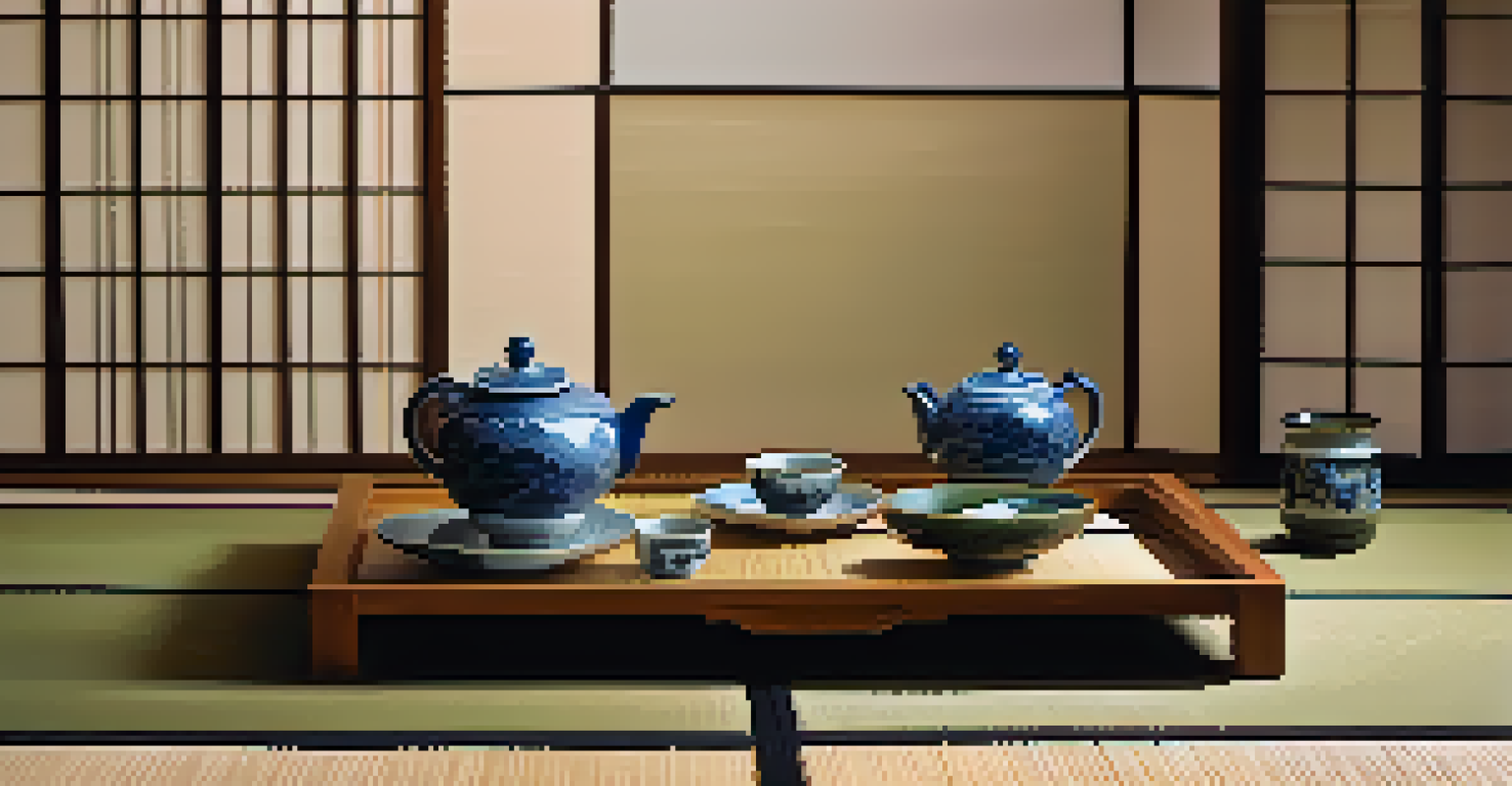Rituals and Their Significance in Spiritual Human Experiences

Understanding Rituals: A Gateway to Spiritual Connection
Rituals are more than mere traditions; they serve as a bridge to connect us with the divine and the universe. From daily practices to significant life events, rituals offer a structured way to express our beliefs and values. They provide a sense of belonging and continuity, grounding us in our culture and community.
Rituals are the formulas by which harmony is restored.
Consider a simple morning routine, like lighting a candle or saying a prayer; these actions can transform an ordinary day into a sacred experience. Such rituals create a space for reflection and gratitude, helping us to cultivate a deeper awareness of our surroundings. They become more than actions; they become a way to acknowledge the sacredness in our lives.
Ultimately, understanding rituals opens the door to a richer spiritual experience, inviting us to explore the depths of our beliefs. By engaging in rituals, we not only honor our past but also shape our present and future. This connection through ritual is what adds meaning to our spiritual journeys.
The Psychological Benefits of Engaging in Rituals
Engaging in rituals can have profound psychological benefits, often providing a sense of stability and predictability in our lives. In times of stress or uncertainty, rituals can serve as comforting anchors that help us navigate through chaos. For example, lighting incense during meditation can signal our mind to shift into a more reflective state.

Research shows that rituals can reduce anxiety and enhance emotional well-being. They create a sense of control and empowerment, allowing individuals to cope better with life's challenges. This is particularly evident in communal rituals, where collective participation fosters a sense of unity and support among individuals.
Rituals Enhance Spiritual Connection
Rituals serve as a bridge to the divine, helping us express beliefs and values while grounding us in our culture and community.
By incorporating rituals into our lives, we can cultivate resilience and emotional strength, transforming our approach to stress. These practices not only help us deal with immediate concerns but also contribute to long-term mental health. In essence, rituals become essential tools for nurturing our inner selves.
Cultural Variations: Rituals Across the Globe
Rituals vary widely across cultures, reflecting the diverse beliefs, values, and traditions of communities around the world. From the vibrant Diwali celebrations in India to the solemnity of a Native American smudging ceremony, each ritual carries unique significance. These cultural expressions provide insight into the worldview of different societies.
The act of dying is one of the acts of life.
For instance, in Japan, the tea ceremony is not just about drinking tea; it's a meditative practice that emphasizes harmony, respect, and tranquility. Such rituals are often steeped in history and symbolism, teaching us lessons about the culture's priorities and values. They also demonstrate how rituals can preserve cultural heritage across generations.
Exploring these cultural variations enriches our understanding of humanity and the shared experiences that connect us all. By appreciating the diversity in rituals, we can cultivate empathy and deeper connections with others. This exchange of practices can foster a global community grounded in respect and understanding.
Rituals in Major Life Events: Marking Transitions
Life is filled with significant transitions, and rituals often play a crucial role in marking these moments. Whether it's a wedding, graduation, or a funeral, rituals help us acknowledge and navigate the complexities of change. They provide structure during times of emotional upheaval, offering a path for individuals and families to process their experiences.
Take weddings, for example; the exchange of vows is not just a legal commitment; it's a ritual that signifies the merging of two lives and the promises made. These ceremonies often incorporate traditions that reflect the couple's backgrounds and beliefs, creating a unique tapestry of shared values. Likewise, funerals serve as a way to honor the deceased while allowing the living to grieve and celebrate a life well-lived.
Rituals Foster Psychological Well-Being
Engaging in rituals provides stability and reduces anxiety, empowering individuals to cope with life's challenges.
By engaging in these rituals, we honor our connections to each other and to the significant moments that shape our lives. They remind us of the cycles of life, providing comfort as we navigate the inevitable changes we all face. Ultimately, these rituals help us find meaning in our experiences and foster a sense of community.
Rituals and Personal Growth: A Path to Self-Discovery
Rituals can serve as powerful catalysts for personal growth, encouraging self-reflection and deeper understanding. Engaging in regular practices, such as journaling or meditation, helps individuals connect with their inner selves and explore their beliefs. This journey of self-discovery often leads to transformative insights and greater clarity about one's purpose.
Consider the ritual of setting aside time for gratitude each day; it can shift our focus from what we lack to what we have, fostering a more positive mindset. Such rituals invite us to slow down and appreciate the present moment, enhancing our overall well-being. They create opportunities for introspection, enabling us to recognize patterns in our thoughts and behaviors.
As we commit to these rituals, we cultivate a deeper relationship with ourselves, allowing for growth and change. This process not only enriches our spiritual lives but also impacts our interactions with others. Ultimately, rituals become a vital part of our personal evolution.
The Role of Rituals in Community Building
Rituals play a vital role in fostering community bonds, creating shared experiences that unite individuals. Whether it's a religious service, a family gathering, or a local festival, these collective rituals strengthen relationships and cultivate a sense of belonging. They remind us that we are part of something larger than ourselves.
Take, for example, a community potluck; sharing food not only nourishes the body but also nourishes social ties. These gatherings allow individuals to connect, share stories, and celebrate their unique identities while recognizing their shared humanity. Such rituals create spaces for dialogue and connection, reinforcing the idea that we are all in this together.
Rituals Build Community Bonds
Collective rituals create shared experiences that strengthen relationships and foster a sense of belonging among individuals.
Through communal rituals, we can cultivate empathy and understanding, bridging gaps between diverse groups. As we engage in these shared practices, we contribute to a more cohesive and supportive community. Ultimately, rituals help us build relationships that enrich our lives and the lives of those around us.
Conclusion: Embracing the Power of Rituals in Our Lives
In conclusion, rituals hold significant importance in our spiritual human experiences, shaping our beliefs and connections. From personal growth to community bonding, these practices enrich our lives in countless ways. Embracing rituals allows us to navigate life's complexities with grace and intention.
As we explore and engage in different rituals, we discover insights about ourselves and our relationships with others. They provide a framework for understanding the world around us while honoring our individual journeys. By incorporating rituals into our daily lives, we can cultivate a deeper sense of meaning and purpose.

Ultimately, the power of rituals lies in their ability to connect us with ourselves, each other, and the greater universe. Let's celebrate and embrace these practices, allowing them to guide us on our spiritual journeys and enhance our everyday experiences.